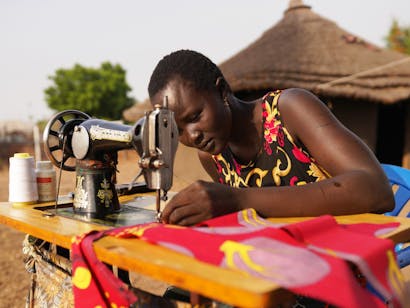Working paper: Peacebuilding in South Sudan
The nature of the conflict in South Sudan is complex and characterized by the diverse patterns of decades-old grievances as well as newer challenges. The lack of inclusivity (especially with regards to women), widespread lawlessness and corruption, weak institutions and governance systems and extreme lack of basic services are interwoven. These factors represent a challenge to stability and sustainable peace. History has proven that high-level political processes alone cannot deliver long-term solutions. The participation and inclusivity of grassroots (local) actors is crucial.

Various approaches to sustainable peace
Given the history of conflict in South Sudan, it is easy to agree that it is a challenging context to build peace. During a learning event for local Peacebuilding practitioners in South Sudan on October 2019, participants shared their experiences. They agreed that, to ensure a holistic approach to sustainable peace, Peacebuilding interventions should be built on proven approaches and evidence-based work.
A working paper of the event elaborates on various approaches that are used for grassroots peacebuilding by local and international actors, eg. working with community influencers and local peacebuilding structures as well as the opportunities that legal frameworks provide.
Participation of women
The paper highlights various strategies to ensure the effectiveness and sustainability of Peacebuilding, such as: putting the community central, working together with community leaders and local government and using innovative strategies, such as radio. Furthermore, the paper presents both opportunities and challenges of linking women’s grassroots efforts with higher-level Peacebuilding efforts.
Despite the unequal gendered power relation aggravated by deeply entrenched patriarchy, poverty, conflicts and cultural practices that regard women largely as caregivers, opportunities for women to engage in Peacebuilding at both grassroots and national levels do exist. Some of these opportunities are engraved in a number of policies and frameworks developed by the government to enhance women’s participation in Peacebuilding and nation building process at all levels, such as the UNSCR 1325 National Action Plan (NAP) (2015-2020).
Working paper on grassroots level Peacebuilding
The paper was commissioned by CARE International in South Sudan and CARE Nederland to Rita Lopidia, independent Peacebuilding consultant and reflects the first-hand experiences and insights on grassroots level Peacebuilding by field-based Peacebuilding practitioners of diverse national and international NGOs, complemented by a literature study and desk research. The working paper was developed as part of the Addressing Root Causes of Conflict (ARC) Project funded by the Ministry of Foreign Affairs of the Royal Kingdom of the Netherlands.


